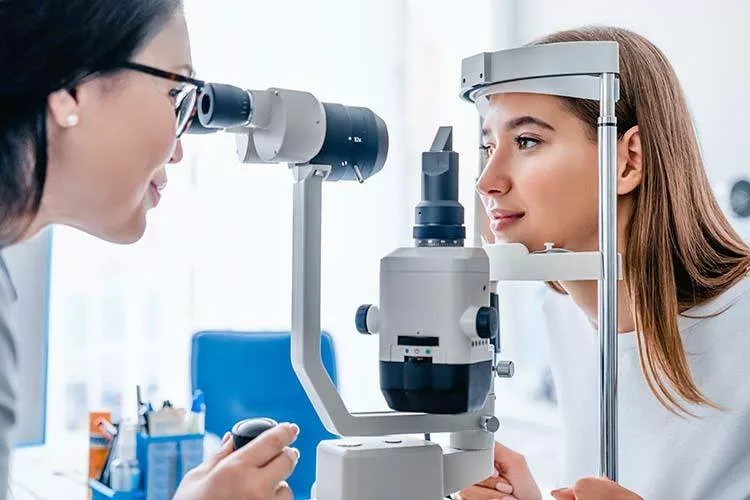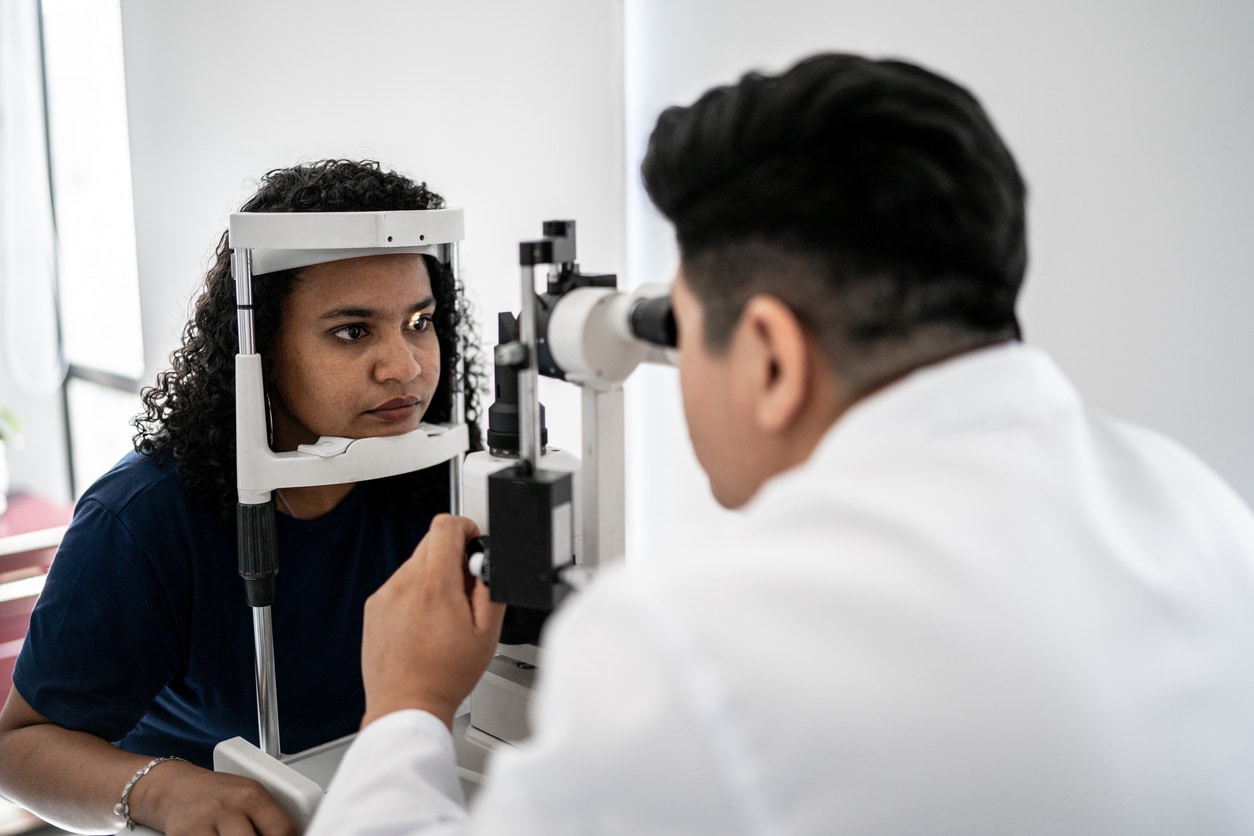Skilled Optometrist for Comprehensive Eye Examinations
Skilled Optometrist for Comprehensive Eye Examinations
Blog Article
The Value of Routine Eye Examinations: Insights From a Skilled Optometrist
Normal eye examinations serve as a vital component of healthcare that extends past simple vision modification. A knowledgeable eye physician can supply understandings right into exactly how these examinations not just identify common eye conditions however also disclose underlying health problems that may or else go undetected.
Advantages of Regular Eye Exams
Although numerous people might ignore the significance of normal eye tests, these analyses play a crucial duty in keeping general health and wellness and health. Regular eye exams offer not only to assess vision however likewise to identify very early indications of systemic health issues, consisting of diabetic issues and hypertension. By identifying these problems at their creation, people can get timely treatments, dramatically boosting lasting end results.
Furthermore, eye exams can aid in keeping an eye on existing health concerns, making sure that any type of adjustments in vision or eye health are promptly resolved (optometrist). The evaluations enable personalized suggestions pertaining to eyewear, way of life adjustments, and protective measures against possible eye strain or damages
Beyond physical health, the benefits of regular eye examinations reach boosting quality of life. Improved vision helps with far better performance in everyday tasks, from checking out to driving, thus adding to higher independence and security. Eventually, prioritizing eye exams promotes a proactive approach to wellness monitoring, equipping individuals to take charge of their health. Routine check-ups are a vital component of a comprehensive medical care method, making sure that both vision and overall wellness are protected throughout life.
Common Eye Issues Detected
Regular eye examinations are important in detecting a range of common eye conditions that can significantly affect vision and overall wellness. Among one of the most prevalent problems recognized during these examinations are refractive mistakes, including myopia (nearsightedness), hyperopia (farsightedness), and astigmatism. These problems frequently show up as blurred vision and can be easily remedied with prescription glasses or contact lenses.
In addition, cataracts, which trigger clouding of the lens, are frequently identified in older adults. This condition can bring about decreased vision and needs medical intervention for resolution. Another usual concern is glaucoma, a group of eye illness that damage the optic nerve, usually linked to increased intraocular stress. Early detection is essential as it can prevent permanent vision loss.
Age-related macular deterioration (AMD) is another considerable problem that influences central vision, specifically in individuals over 50. Finally, diabetic person retinopathy, an issue of diabetes, can result in extreme vision disability otherwise checked consistently. With extensive eye tests, these conditions can be recognized early, permitting prompt administration and treatment to preserve vision and boost high quality of life.
Importance of Very Early Detection
Very early detection of eye conditions plays an important function in maintaining vision and protecting against substantial wellness difficulties. Numerous eye illness, such as glaucoma, diabetic person retinopathy, and age-related macular deterioration, can proceed calmly without recognizable signs in their very early phases. By the time signs and symptoms show up, irreversible damage might have taken place, bring about permanent vision loss.
Routine More about the author eye examinations help with early medical diagnosis, enabling timely treatment and treatment. For example, dealing with raised intraocular stress can stop the onset of glaucoma, while managing blood sugar level levels can substantially lower the threat of diabetic person retinopathy. Additionally, problems like cataracts can be efficiently handled with medical treatment when recognized early.

Exactly How Commonly Should You Visit?
Identifying the frequency of eye examinations is necessary for keeping optimum eye wellness and vision. The basic recommendation for adults is to have a comprehensive eye exam every one to two years, depending upon private threat factors and age. For individuals aged 18 to 60, an exam every two years is usually enough if no vision troubles exist. However, those over 60 should consider annual exams, as the risk of age-related conditions boosts dramatically.
People with particular danger variables, such as a family members background of eye condition, diabetic issues, or existing vision troubles, might call for even more regular examinations. Kids must have their very first eye exam at six months of age, adhered to by extra examinations at age three and before entering college. Normal check-ups during youth are important as vision can alter quickly throughout developing years.
Eventually, the frequency of gos to ought to be tailored per person's scenarios, including way of life, work-related dangers, and any pre-existing eye conditions. Consulting with an eye treatment expert can offer personalized referrals, making certain that your eye health and wellness is on a regular basis checked and maintained.
Tips for Your Eye Exam
Preparing for your eye test can boost the performance of the check out and ensure a comprehensive evaluation of your eye health. To optimize your time with the eye physician, it is essential to gather pertinent info prior to your consultation. Begin by compiling a checklist of any type of medications you are presently taking, including non-prescription medications and supplements, as these can impact eye health.
In addition, record any signs you have actually experienced, such as obscured vision, pain, or migraines. This details will certainly assist your eye doctor in identifying prospective concerns.
It is also useful to have a family members history of eye conditions available, as hereditary factors can add to your eye health and wellness. Ultimately, consider scheduling your test temporarily when you are less hurried, allowing you to ask concerns and review your problems extensively. By preparing adequately, you ensure that your eye test is efficient and that your ophthalmologist has all the essential details to offer the most effective treatment feasible.

Conclusion
Routine eye tests play a vital duty in maintaining both vision and general wellness. Ultimately, focusing on thorough eye assessments adds substantially to the preservation of vision and the enhancement of quality of life, highlighting the need of regular eye care in precautionary medical care strategies.
Routine eye tests are important in spotting a range of common eye conditions that can dramatically click here now impact vision and general wellness.Determining the frequency of eye tests is important for preserving ideal eye health and a knockout post vision.Preparing for your eye exam can improve the performance of the visit and guarantee a detailed evaluation of your eye health (optometrist). By preparing appropriately, you guarantee that your eye examination is efficient and that your eye physician has all the needed info to give the best care possible
Ultimately, prioritizing extensive eye assessments contributes considerably to the conservation of vision and the enhancement of high quality of life, underlining the necessity of routine eye treatment in preventative medical care methods.
Report this page